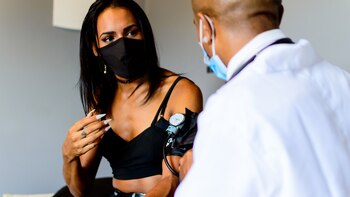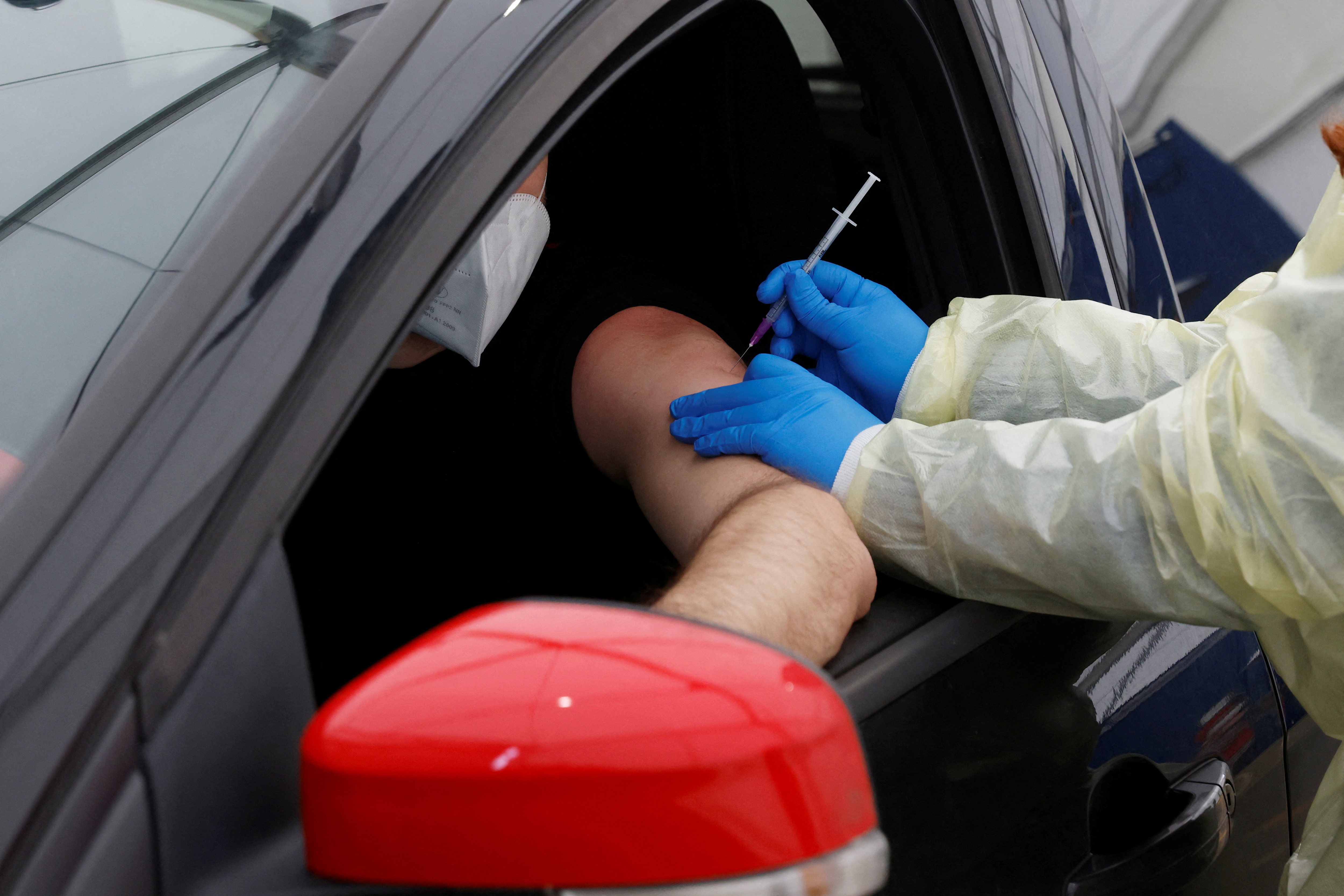

There is already strong evidence that vaccination against COVID-19 does not affect fertility in women and men. But information on the impact of immunization on menstrual cycles is still limited. Menstrual cycles are known to show wide variability in each person. Changes include cycle length and length and intensity of menstrual bleeding.
New research from the University of Washington in St Louis, United States, now suggested that many people who do not usually menstruate reported having experienced intermittent bleeding or other symptoms of menstruation after receiving the COVID-19 vaccine. The study was conducted through an online survey. Due to the methodology that was used, there may be limitations.
It was the first study to examine vaccine-associated menstrual bleeding in people taking testosterone or other hormones that suppress menstruation. The research focuses on people with a range of gender identities such as trans people, non-binary people or gender-fluid people.
Until now, previous studies on menstrual symptoms related to the COVID-19 vaccine have focused primarily on cisgender women (CIS). That is, about women whose gender identity coincides with the female gender assigned to them at birth.
“It is important to examine the impact of the COVID-19 vaccine on menstruation and breakthrough bleeding in people who are not CIS women, as they are all too often left out of the debate,” said Dr. Katharine Lee, a postdoctoral research fellow in the public health sciences division of the University of Washington in St. Louis, first author of the study.

“I hope this study adds to the growing evidence that perhaps we should include periods as part of vaccine research more broadly. Our findings also highlight the importance of including people with gender diversity when we study parts of biology that are closely related to sex-based reproductive physiology, such as periods,” he stressed.
Dr. Lee will present the results of the study at the annual meeting of the American Anatomy Association during the 2022 Experimental Biology (EB) meeting, held in Philadelphia from April 2-5.
Researchers have previously reported that some people with regular or predictable menstrual cycles experience changes in the timing or symptoms of their periods after receiving the COVID-19 vaccine, although these changes are usually temporary and there is no evidence that fertility is affected. For the new study, Lee and colleagues looked at a subset of responses to an online survey about menstrual experiences after vaccination to obtain specific information about people who don't usually menstruate.
Of the more than 160,000 people who responded to the survey, researchers identified 552 people who said they used testosterone or other gender-affirming hormones and didn't usually menstruate. Most of these respondents (84%) selected more than one gender category, with 460 identifying themselves as transgender, 373 specifying that they identified as male or male, 241 identifying as non-binary, and 124 indicating that they were queer/gender non-conforming.
A third of respondents reported having breakthrough bleeding after receiving the COVID-19 vaccine, 9% reported having chest or breast pain, and 46% reported having other symptoms that would normally be associated with menstruation, such as cramps and swelling. Some respondents used the survey's open text boxes to report significant negative mental health effects in response to period symptoms, such as anxiety, depression, gender dysphoria, panic attacks, and suicidal ideation.
“I hope that discussing these findings openly will let people know that this could be a side effect so that they can prepare properly,” Dr. Lee said. “This is especially important given the fact that some people described mental health outcomes such as anxiety, depression, and suicidal ideation as responses to unexpected bleeding after vaccination.”
Lee added that a better understanding of the potential side effects of menstruation can help address the needs of medically underserved populations, including people with gender diversity, as well as help reduce doubts about the vaccine. The research team shared the results of a different subset of the same survey on the a href="https://www.medrxiv.org/content/10.1101/2021.10.11.21264863v1" rel="noopener noreferrer" target="_blank"bMedRXIV platform and was not yet peer-reviewed.
Last February, the Spanish Agency for Medicines and Health Products reported that menstrual disorders, such as alterations affecting the amount of bleeding and the length of the cycle, were evaluated by European drug agencies throughout the second half of 2021. This evaluation reviewed all the information available at that time at European and global levels, for each of the vaccines authorized in the European Union.
The data available up to that time did not support the hypothesis of a possible causal relationship of these disorders with approved vaccines. Nor was a common pattern determined in the profile of identified problems or patients, and the observed frequency of these disorders in the reported cases did not exceed the frequency expected in the general population of unvaccinated women.
“In general, a woman's menstrual cycles throughout her life are highly variable in intensity and duration and depend on many factors. There are even other diseases and medications that could be present in women at the time of the onset of such disorders, which act on the same physiological mechanisms that regulate the menstruation process and cause similar symptoms and that could therefore be the cause of these disorders,” said the statement from the Spanish Agency.
“Subsequently, the results of some studies carried out (some not yet published) that point to mild and transient changes in menstruation after vaccination have been released, although the authors themselves acknowledge the limited quality of information collection,” he reported. After learning about these studies and in order to assess more comprehensively and put all the information generated into context, a new evaluation of the possible relationship between menstrual disorders and the RNA messenger vaccines developed by Pfizer and BioNTech and Moderna has been initiated by European regulatory authorities.
When asked by Infobae, Dr. Patricia San Martín, coordinator of the Department of Transgender Health of the Argentine Society of Endocrinology and Metabolism (SAEM) and a specialist at Ramos Mejía Hospital, said that “no bleeding has been observed after vaccination against COVID-19 in the population of more than 200 people we care for reside in the Federal and Conurbano Capital. It would be a topic to investigate further. One possibility is that our population of patients have received hormonization have been immunized with vaccines other than those applied in the survey that was did in the United States. But it would have to be studied.”
KEEP READING: